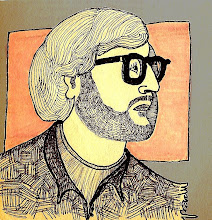jueves, 1 de noviembre de 2012
Dexter Gordon
This openness and invention is heard at its best on “One Flight Up”. The album is remarkable for a host of reasons. It was recorded in Paris (not New Jersey) by musicians who had established themselves outside of the United States. On its initial release on vinyl, a single 18 minute track (“Tanya”) took up the whole of the first side – this some two years before Bob Dylan’s “Sad Eyed Lady of the Lowlands” amazed the pop world by taking up a whole side of the album “Blonde on Blonde”. And “One Flight Up” marks the early and definitive appearance of one of the few European jazz players to make it on a truly international stage – bass player Niels-Henning Orsted Pedersen, unsurprisingly known for short as NHOP. Dexter had been successful with the 1963 Blue Note release “Our Man In Paris” (with Bud Powell (piano), Pierre Michelot (bass) and Kenny Clarke (drums), recorded at CBS studios Paris, as the title suggests. This in itself is often regarded as one of the great jazz albums in which Dexter’s style fully and freely emerges. Francis Wolff was keen to get more of Dexter’s output on disc and went to Paris to produce the “One Flight Up” sessions. Leonard Feather’s original album liner notes for “One Flight Up” and the additional notes prepared by Bob Blumenthal for the RVG edition in 2003 both refer to a round table discussion for “Down Beat” in 1964 in which Dexter Gordon and Kenny Drew (who plays piano on the album) talk about the advantages of being expatriates. Dexter had left the US in 1962 to take up a permanent residency at the Montmatre Club in Copenhagen. There he had recruited NHOP (then aged just 16) as bass player in his trio. Kenny Drew had moved to Paris in 1960, staying on after a six week role in the play “The Connection”. Both point out the freedom that they were able to discover in playing jazz away from the pressures of being back home. The most obvious advantage was the absence of racism – still a major problem for African Americans in the 1960s, as we have pointed out in discussing John Coltrane’s music. Blue Note References.
Etiquetas:
Art Taylor,
Dexter Gordon,
Donald Byrd,
jazz,
Kenny Drew,
Niels-Henning Ørsted Pedersen
Suscribirse a:
Enviar comentarios (Atom)

















No hay comentarios:
Publicar un comentario